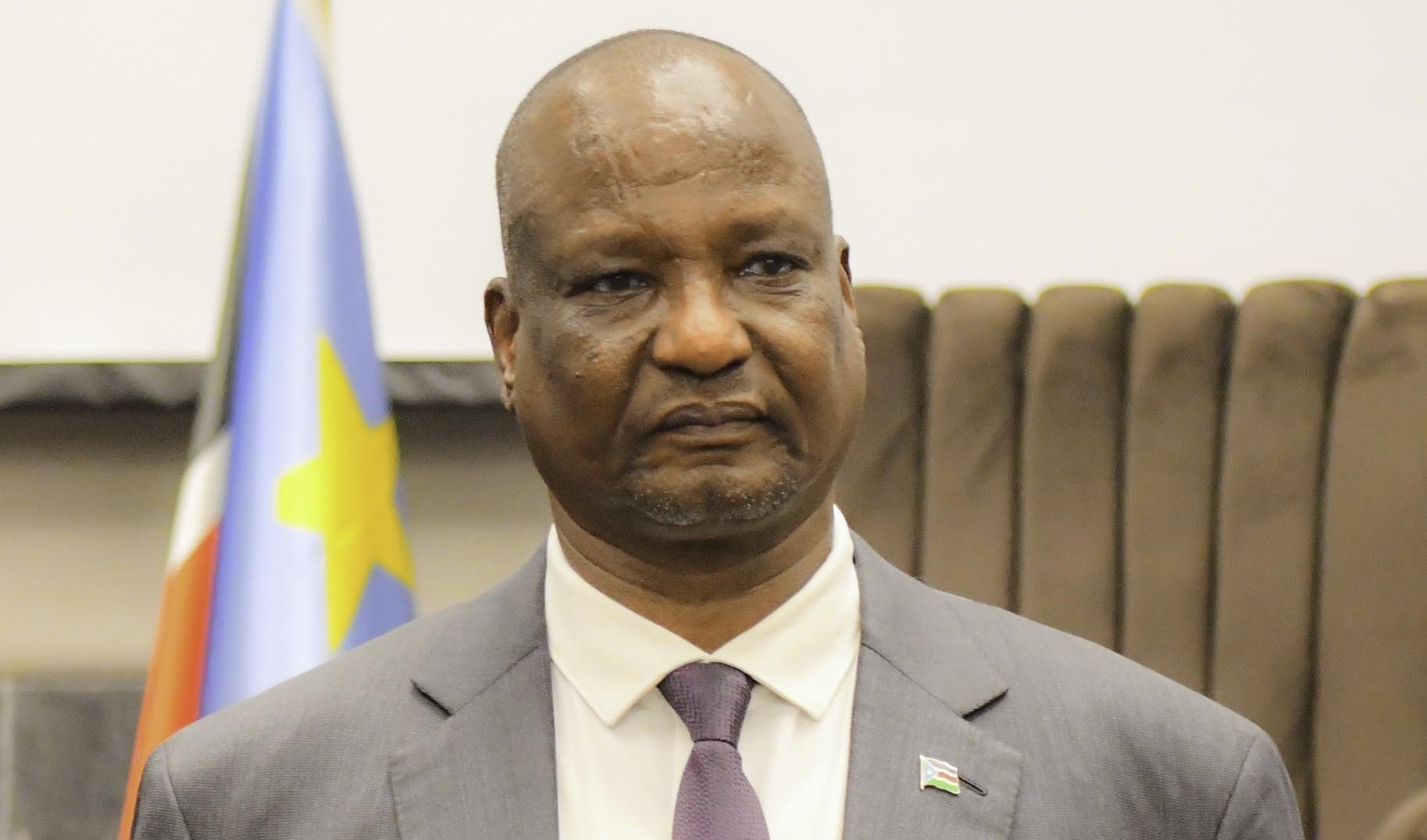
South Sudan’s First Vice President and Chairperson of the Infrastructure Cluster, Taban Deng Gai, has proposed a radical measure of executing corrupt government officials by firing squad.
Speaking during closing of National Trade Forum on Monday, April 28, in Juba, Taban framed the extreme proposal as a necessary step to combat the rampant corruption he believes is choking the country’s development.
“Corruption is too much. We need to tell ourselves the truth. I think the time has come that we should fire-squad ourselves to fight corruption,” Taban said.
“Corruption is worse than killing. How can we develop when there are illegal tax collectors? When there is only one authority known to collect taxes. According to the constitution, is there anyone who can collect taxes more than the revenue authority? Nobody, but there on the roads, people appear. Even in the river, some people are doing it illegally,” he added.
Taban cited a specific case where alleged criminals, claiming to be government officials, at an undisclosed location have held a GPOC fuel boat on the River Nile for over six months, demanding a $15,000 ransom after already receiving $10,000.
He called for the removal of all illegal checkpoints contributing to such acts.
“From here, there are some criminals who claim that they are the government. There was a steamboat traveling from Juba to Upper Nile, transporting things belonging to the GPOC. Currently, the steamer has been detained for six months, and the criminals refused the release it and demanded a ransom of $ 15,000 this morning after he paid them $ 10, 000,” Taban explained.
Taban’s suggestion comes against a backdrop of deeply rooted corruption that has choked the nation since its independence in 2011.
The country’s corruption widely documented by international observers and anti-corruption watchdogs, is fueled by weak governance institutions, lack of accountability, and years of conflict.
According to observers, billions of dollars in public funds are estimated to have been diverted or stolen over the past decade. This has undermined provision of essential public services like healthcare and education.
While, the viability and legality of executions are questionable and would likely draw condemnation, Taban’s proposal underscores failure of conventional methods to curb corruption in South Sudan.

